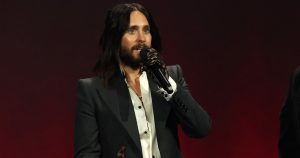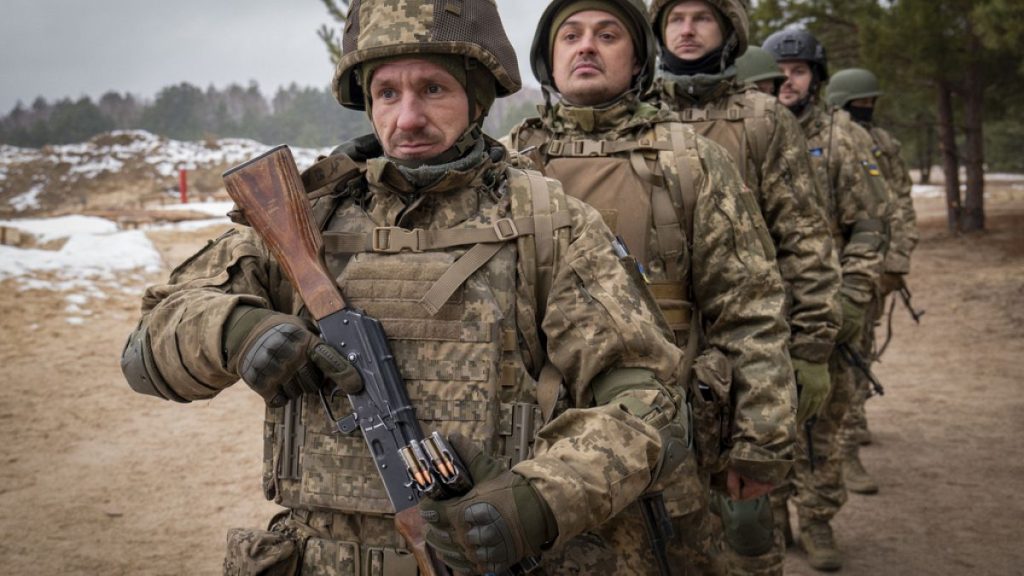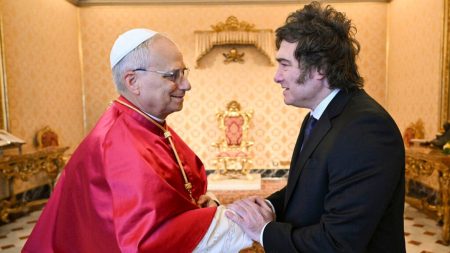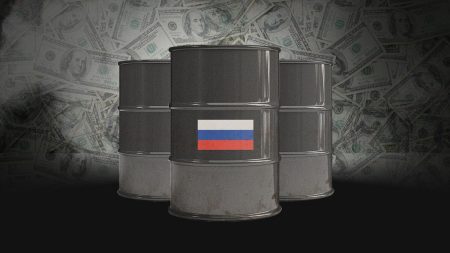Olha Stefanishyna, Ukraine’s Deputy Prime Minister for European and Euro-Atlantic Integration, anticipates significant shifts in European security and defense policy, particularly regarding support for Ukraine. She highlights the unprecedented appointment of three European Commission members responsible for security and defense, signaling a potential surge in the EU’s focus on these areas. This heightened attention to security and defense comes at a crucial time for Ukraine, as it faces continued aggression from Russia and grapples with the uncertainty surrounding future US support. Stefanishyna expresses optimism that the EU will strengthen its commitment to Ukraine, filling any potential void left by a shift in US policy. This anticipated increase in EU involvement is viewed as a critical element in bolstering Ukraine’s defense capabilities and ensuring its long-term security.
A key aspect of the evolving EU-Ukraine relationship centers around the “Danish model” of defense cooperation. This model, pioneered by Denmark, involves funding Ukraine’s defense industry to enhance its capacity for domestic arms production. Stefanishyna advocates for the broader adoption of this model by other EU member states, emphasizing its potential to strengthen Ukraine’s self-reliance in defense and integrate it further into the European defense industrial base. This collaboration not only addresses Ukraine’s immediate security needs but also fosters long-term strategic partnerships within Europe, aligning Ukraine more closely with its European allies. The promotion of this model underscores a shift towards greater European ownership of Ukraine’s defense needs and signifies a growing recognition of Ukraine’s strategic importance within the broader European security architecture.
Poland’s upcoming rotating presidency of the EU is expected to prioritize security issues, further strengthening the focus on Ukraine’s defense. While specifics of Poland’s agenda remain unclear, Stefanishyna anticipates a continuation of the broader EU focus on security, driven by the European Commission’s priorities. Poland’s strong support for Ukraine historically reinforces this expectation. However, Stefanishyna acknowledges the lack of concrete details regarding Poland’s specific plans for supporting Ukraine during its presidency. This ambiguity highlights the ongoing evolution of EU strategy towards Ukraine and the need for further clarification regarding the tangible actions that will be taken during Poland’s leadership.
Despite the anticipation surrounding Poland’s presidency, Stefanishyna does not explicitly link it to Ukraine’s EU accession. This separation indicates that while security cooperation will be a central theme, the immediate focus remains on strengthening Ukraine’s defense capabilities rather than accelerating its formal membership process. While Poland has been a vocal advocate for Ukraine’s eventual EU membership, the immediate context prioritizes addressing the ongoing conflict and ensuring Ukraine’s stability. This pragmatic approach acknowledges the complexities surrounding EU enlargement and the need to address pressing security concerns before delving into the intricacies of accession negotiations.
The relationship between Poland and Ukraine, while characterized by strong support on security matters, remains complex. Existing bilateral disputes, particularly concerning agricultural imports and historical grievances related to the Volyn Massacre, add layers of nuance to the overall dynamic. While Poland stands as a steadfast ally in Ukraine’s defense against Russian aggression, these unresolved issues underscore the multifaceted nature of their relationship. Addressing these sensitivities is essential to maintaining a strong and effective partnership in the long term. The ongoing dialogue regarding these issues highlights the need for continued diplomatic efforts to navigate these complexities and ensure that the broader strategic alignment between the two countries is not undermined by bilateral tensions.
In summary, Ukraine anticipates a significant increase in EU support for its defense, driven by a broader European focus on security and defense policy. The “Danish model” of defense cooperation emerges as a central element in strengthening Ukraine’s self-reliance and integrating it further into the European security framework. Poland’s upcoming EU presidency is expected to reinforce this focus on security, although specific details remain to be seen. While the immediate priority centers on bolstering Ukraine’s defense capabilities, the long-term trajectory of EU-Ukraine relations, including the prospect of eventual EU membership, remains a subject of ongoing discussion and development. The complex relationship between Poland and Ukraine, marked by both strong security cooperation and lingering bilateral disputes, adds further layers of intricacy to this evolving dynamic.










